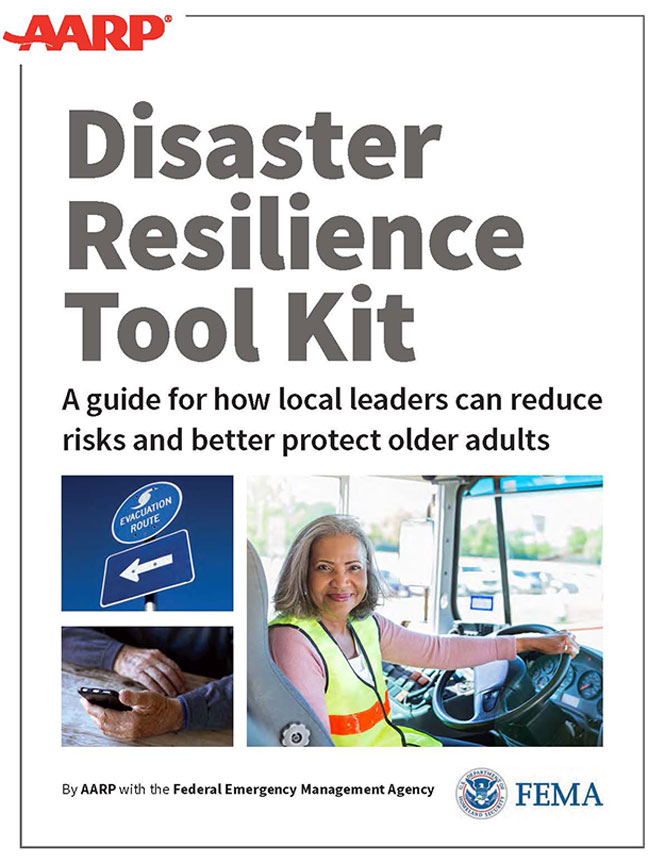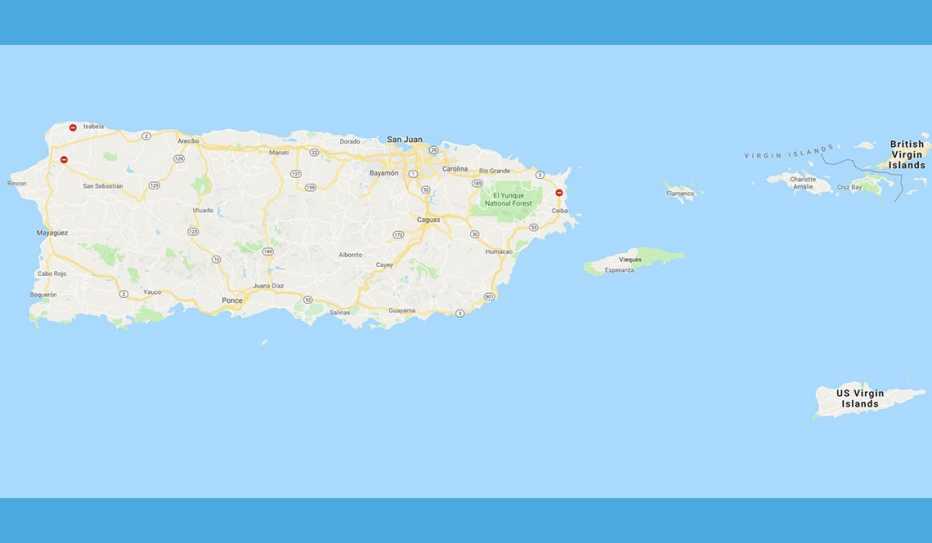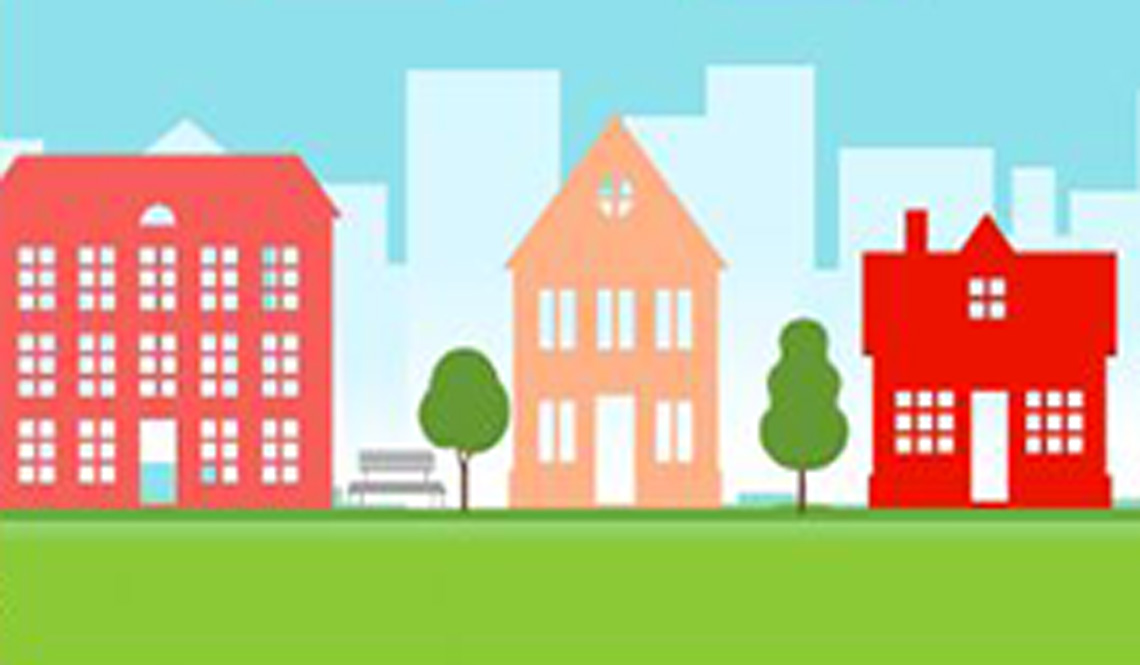AARP Hearing Center
The U.S. Census Bureau projects that by 2034, people age 65 or older will outnumber those under 18 — a first in the nation’s history.


Get the Guide
The AARP Disaster Resilience Tool Kit has been created for local leaders, government staff, aging services professionals, and community advocates and volunteers.
Order or download the 44-page printed guide:
Get FEMA's Guide to Expanding Mitigation: Making the Connection to Older Adults:
That trend has profound implications for emergency management, especially as natural disasters and extreme weather events become more common and severe. A growing body of evidence reveals that older adults are disproportionately impacted during disasters.
“State and local leaders and emergency officials must be better equipped and prepared to ensure that older adults are kept safe and their needs are met when a disaster strikes," says Nancy LeaMond, Executive Vice President and Chief Advocacy & Engagement Officer at AARP.
“Adults aged 65 and older are a growing demographic who are often disproportionately impacted by severe weather," adds Deanne Criswell, Administrator of the Federal Emergency Management Agency (FEMA) . "These disparities can be compounded by other factors, such as low-income or chronic illness, producing inequitable results for this vulnerable population when it comes to disaster preparedness. Effective mitigation planning requires that we consider the needs of all populations, and FEMA’s partnership with AARP on these guides will help community planners ensure our older communities are more resilient in the face of hurricanes and other natural disasters.”
A key to ensuring that older adults are properly served by disaster preparedness and emergency planning is to acknowledge — and address — the gaps that exist between local emergency management teams and the organizations and municipal offices that work with and on behalf of older community members.
Better integrated disaster planning will help local governments better protect all older residents, whether they are living independently in the community or residing in an assisted living or health care facility.
The AARP Disaster Resilience Tool Kit has been created for local leaders, government staff, aging services professionals and community volunteers. It is a companion title to the Guide to Expanding Mitigation: Making the Connection to Older Adults, published by FEMA as a resource for emergency management professionals.
When emergency managers, state and local officials, and other community leaders understand the diverse needs of older adults — by working with them and one another — the plans, projects and procedures they design and deploy will be more effective at protecting residents from harm and saving lives.
- READ AN EXCERPT: "The Impact of Disasters on Older Adults"
- SEE A SLIDESHOW: Presentation: AARP Disaster Resilience Tool Kit
Enabling Resilience
For the Days, Weeks and Months After the Storm
For residents of the U.S. Virgin Islands and Puerto Rico, readiness and relationships were keys to survival in 2017, when two massive hurricanes — Irma and then Maria — devastated the Caribbean islands.
Read the first-person accounts of the two AARP state directors who prepared for, lived through, and helped their communities both endure and work to recover from a season of unprecedented weather.


Learn More
- Visit this page again: AARP.org/DisasterResilience
- Read the media release: "AARP and FEMA Release New Resources to Help Local Communities Protect Older Adults Before, During and After Natural Disasters"
- Find more articles about Community Resilience
You are reading an award-winning publication!
The AARP Disaster Resilience Tool Kit has won the following awards:
- 2023 APEX Grand Award
- 2022 MarCom Awards, Gold Award, Special Issue Category
- 2022 dotCOMM Awards, Gold Award, How-To-Guide Category
Page published July 2022





























































